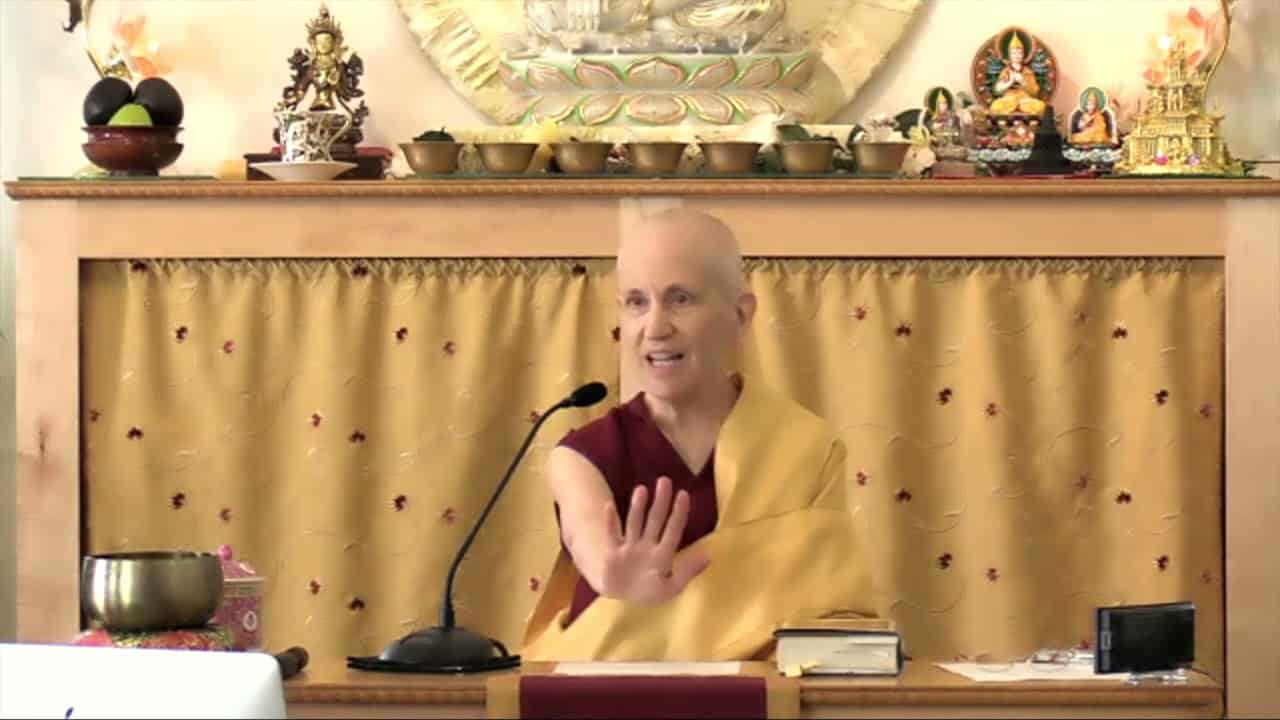Factors causing afflictions to arise
30 Samsara, Nirvana, and Buddha Nature
Part of an ongoing series of teachings (retreat and Friday) based on the book Samsara, Nirvana, and Buddha Nature, the third volume in The Library of Wisdom and Compassion series by His Holiness the Dalai Lama and Venerable Thubten Chodron.
- Seeds of afflictions triggering manifest afflictions
- Contact with objects provoking attachment or anger
- Detrimental influences such as bad friends
- How our emotions or behaviors are affected by peer group
- Verbal stimuli, such as news, books and media
- Habitual ways of thinking and habitual emotions
- Importance of learning and applying antidotes to our habitual afflictions
- Different ways in which distorted attention fuels our afflictions
Samsara, Nirvana, and Buddha Nature 30: Factors Causing Afflictions To Arise (download)
Contemplation points
- How do the seeds of afflictions set the stage for afflictions to arise?
- Consider what objects cause afflictions to arise in your mind. Make personal examples of how this happens in your life.
- What are some detrimental influences in your life, influences that may even seem to be helpful, but lead you to making decisions counter to your spiritual aspirations? What are ways in which you act based on what you think that others think you should do or expect you to be?
- Consider the effect of the various types of media on your mind. How does it impact your thoughts and emotions? Make personal examples.
- Name some habitual emotions and ways of thinking that facilitate the arising of afflictions in your experience.
- What are some examples of ways in which you have been caught up in distorted attention? Why is this such a perfect setting for afflictions to arise?
- Resolve to be more mindful in your daily life of how these factors influence your mind and the arising of afflictions. Counter them with Dharma antidotes.
Venerable Thubten Chodron
Venerable Chodron emphasizes the practical application of Buddha’s teachings in our daily lives and is especially skilled at explaining them in ways easily understood and practiced by Westerners. She is well known for her warm, humorous, and lucid teachings. She was ordained as a Buddhist nun in 1977 by Kyabje Ling Rinpoche in Dharamsala, India, and in 1986 she received bhikshuni (full) ordination in Taiwan. Read her full bio.


